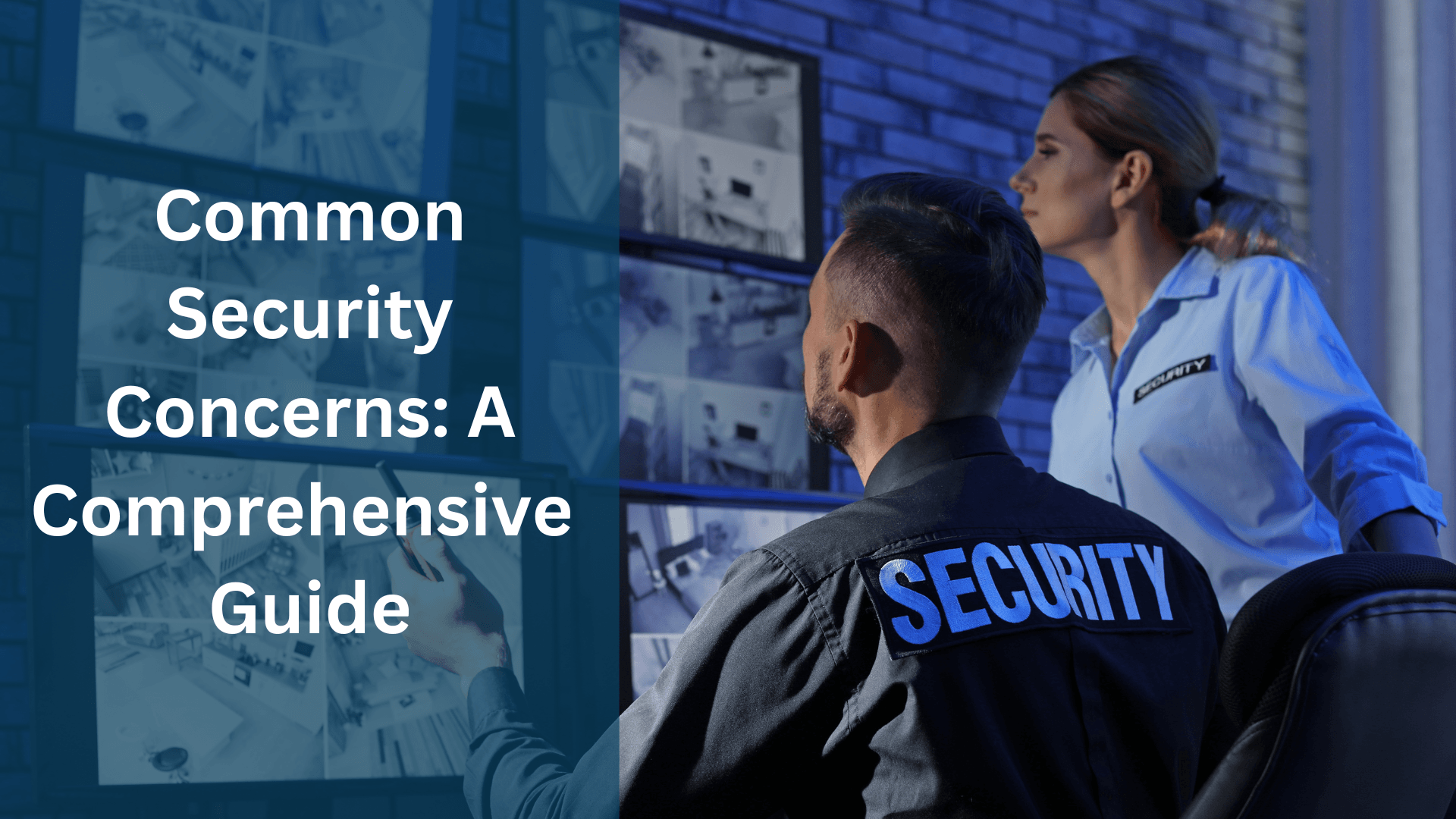Common Security Concerns: A Comprehensive Guide
Discover how to address common security concerns with this comprehensive guide. Learn about physical security, cybersecurity, and more.
Introduction to Security Concerns
Security is not just about protecting physical assets; it also involves safeguarding people, information, and reputation. Whether you run a small business, manage a large corporation, or oversee an educational institution, security should be a top priority. This guide will help you identify common security concerns and offer practical solutions to address them.
Physical Security Concerns

Unauthorized Access
Unauthorized access is a significant concern for any organization. Whether it's a trespasser entering your premises or an employee accessing restricted areas, unauthorized access can lead to theft, data breaches, and other security issues.
Solution: Implement access control systems, such as keycards, biometric scanners, and security checkpoints, to monitor and restrict entry to sensitive areas.

Theft and Vandalism
Theft and vandalism can result in significant financial losses and damage to your property. These acts can be perpetrated by outsiders or even by disgruntled employees.
Solution: Install surveillance cameras, alarm systems, and hire security personnel to deter potential criminals. Conduct regular audits and inventory checks to minimize the risk of internal theft.

Workplace Violence
Workplace violence is a growing concern, especially in industries where employees interact with the public. It can range from verbal threats to physical assaults, and it can occur between employees or involve customers.
Solution: Train employees on conflict resolution and de-escalation techniques. Establish clear policies and procedures for reporting and addressing workplace violence. Ensure that security personnel are present in high-risk areas.
Cybersecurity Concerns

Data Breaches
Data breaches can have devastating consequences, including financial losses, legal liabilities, and damage to your reputation. Cybercriminals are constantly evolving their tactics to exploit vulnerabilities in your systems.
Solution: Implement robust cybersecurity measures, such as firewalls, encryption, and multi-factor authentication. Regularly update software and conduct security audits to identify and address vulnerabilities.

Phishing Attacks
Phishing attacks involve cybercriminals tricking employees into providing sensitive information, such as login credentials or financial details. These attacks often come in the form of fraudulent emails or messages.
Solution: Educate employees about the risks of phishing and how to recognize suspicious emails. Use email filtering tools to reduce the likelihood of phishing emails reaching your inbox.

Ransomware
Ransomware is a type of malware that locks you out of your systems or encrypts your data until a ransom is paid. This can bring your operations to a halt and result in significant financial losses.
Solution: Regularly back up your data and store it in a secure location. Implement endpoint protection software to detect and block ransomware before it can cause harm.
Human Resource Concerns

Employee Theft
Employee theft is a common concern in many organizations. It can involve stealing physical assets, data, or even intellectual property. This type of theft can be challenging to detect and address.
Solution: Conduct thorough background checks during the hiring process. Implement strict access controls and monitor employee activity for any signs of suspicious behavior.

Employee Negligence
Employee negligence, such as failing to follow security protocols or mishandling sensitive information, can lead to security breaches. This is often due to a lack of training or awareness.
Solution: Provide regular security training for employees and reinforce the importance of following protocols. Implement clear procedures for handling sensitive information and ensure that all employees are aware of them.

Insider Threats
Insider threats involve employees who intentionally harm the organization, either for personal gain or out of malice. These threats can be difficult to detect, as the individuals involved often have legitimate access to systems and information.
Solution: Monitor employee behavior for signs of potential insider threats. Implement access controls and conduct regular audits to ensure that employees are only accessing information relevant to their roles.
Conclusion
Security concerns are a reality for every organization, but with the right strategies and measures in place, you can mitigate these risks effectively. By addressing both physical and cybersecurity concerns, as well as human resource and environmental threats, you can create a comprehensive security plan that protects your assets, employees, and reputation.
Need help with your security concerns?
Contact us at info@247americanalliance.com for expert advice and solutions tailored to your needs.

